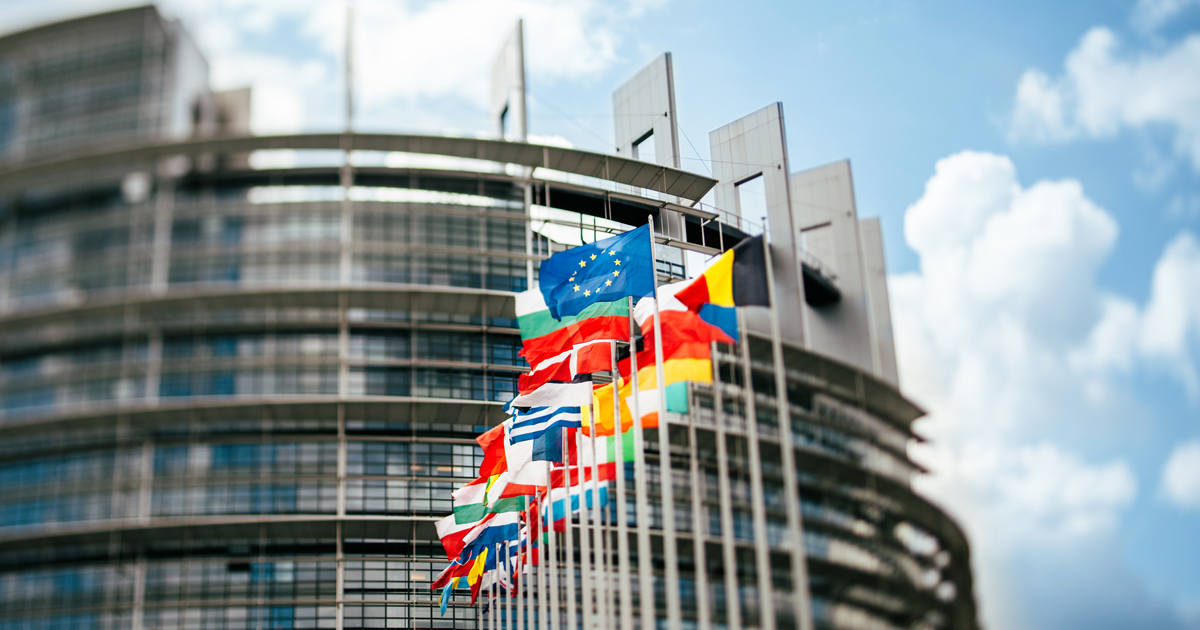The European Commission welcomes the final agreement reached on 8 November by the European Parliament and the Council of the EU at the final trilogue on the regulation introducing European digital identity wallets. This concludes the work of the co-legislators to implement the results of the provisional political agreement reached on 29 June 2023 on a legal framework for EU digital identity, the first reliable and secure digital identity framework for all Europeans.
This marks an important step towards the Digital Decade 2030 objectives on the digitalisation of public services. All EU citizens will have the possibility to have an EU digital identity wallet to access public and private online services in complete safety and protection of personal data across Europe.
In addition to public services, large online platforms designated under the Digital Services Act (including services such as Amazon, Booking.com or Facebook) and private services that are required by law to authenticate their users will have to accept the wallet of EU digital identity to access its online services. Furthermore, the common features and specifications of wallets will make it attractive for all private service providers to accept them for their services, thus creating new business opportunities. The Wallet will also facilitate service providers' compliance with various regulatory requirements.
In addition to securely storing their digital identity, the Wallet will allow users to open bank accounts, make payments and store digital documents, such as a mobile driver's license, a doctor's prescription, a professional certificate or a travel ticket. The Wallet will offer a practical and easy-to-use alternative to online identification, guaranteed by EU legislation. The Wallet will fully respect your choice to share or not share your personal data, will offer the highest degree of security independently certified to the same standards, and relevant parts of its code will be published open source to exclude any possibility of misuse , illegal tracking, tracing or government interception.
Legislative discussions have strengthened the regulation's ambition in a number of areas important to citizens. The wallet will contain a dashboard of all transactions accessible to its owner, offer the possibility to report suspected data protection breaches and allow interaction between wallets. Furthermore, citizens will be able to integrate the wallet with existing national electronic identification systems and benefit from free electronic signatures for non-professional use.
The next steps
The agreement reached by the co-legislators is now subject to formal approval by the European Parliament and the Council. Once formally adopted, the European digital identity regulatory framework will enter into force on the 20th day following its publication in the Official Journal.
Member States will have to provide EU digital identity wallets to their citizens 24 months after the adoption of the implementing acts setting out the technical specifications for the EU digital identity wallet and the technical specifications for certification. These implementing acts – to be adopted 6 and 12 months after the adoption of the regulation – will build on the specifications developed under the EU Digital Identity Toolbox, establishing harmonized conditions for the implementation of wallets across Europe.
The context
The Digital Decade 2030 policy agenda sets out Europe's ambition for digital transformation by 2030. According to the Digital Decade objectives, by 2030 all key public services should be available online, all citizens should be able to access their medical records online, and everyone should have access to secure, privacy-friendly electronic identification.
The EU digital identity portfolio builds on the existing cross-border legal framework for trusted digital identities, the European initiative on electronic identification and trust services (eIDAS Regulation). Adopted in 2014, it provides an initial basis for cross-border electronic identification, authentication and certification of websites within the EU.
The Commission's proposal for an updated framework, on which the co-legislators reached a final agreement today, will improve effectiveness and extend the benefits of a secure and convenient digital identity to the private sector and mobile use.
Four large-scale pilot projects, with an investment of over 90 million euros, of which 46 million co-funded by the Commission under the Digital Europe programme, have started testing the EU digital identity wallet in a number of cases for everyday use, including mobile driving, e-health, digital payments, education and professional qualifications. Testing began on April 1, 2023 and will help improve the wallet's technical specifications.
“I am pleased to see that these highly technical negotiations have come to fruition, turning our proposal into legislation. The EU Digital Identity Wallet will usher in a new era of the Digital Decade, as it represents a convenient and secure way to manage personal digital documents and access public and private online services on a daily basis. European citizens will have control over their personal data and will be able to share it easily, if they wish, from an application on their phone,” he explained Vera Jourova, vice-president of the European Commission.
“The agreement represents an important step towards the EU's 2030 goal of giving all European citizens the ability to use a secure and privacy-friendly digital identity. The EU digital identity wallet will give citizens control over their data and improve security when using online services. It will strengthen Europe's technological sovereignty and help us face today's and future digitalisation challenges,” he added. Thierry breton, European Commissioner for the Internal Market.
“Every time an app or website asks us to create a new digital identity or easily log in to a large platform, we have no idea what is actually happening to our data. For this reason the Commission will propose a secure European digital identity. A secure European identity that we trust and that any citizen can use anywhere in Europe to do anything from paying taxes to renting a bike. A technology where we can control ourselves what data is used and how,” he said Ursula von der Leyen, President of the European Commission, in his State of the Union speech of 16 September 2020.
"This is an important step forward when it comes to online identification. We can foresee this becoming a key way for millions of Europeans to identify themselves online, including when engaging in gambling. This would be a new, cross-border and secure way for online gambling operators to identify EU citizens in compliance with know-your-customer and anti-money laundering requirements“, highlighted theEuropean Gaming and Betting Association (EGBA).











